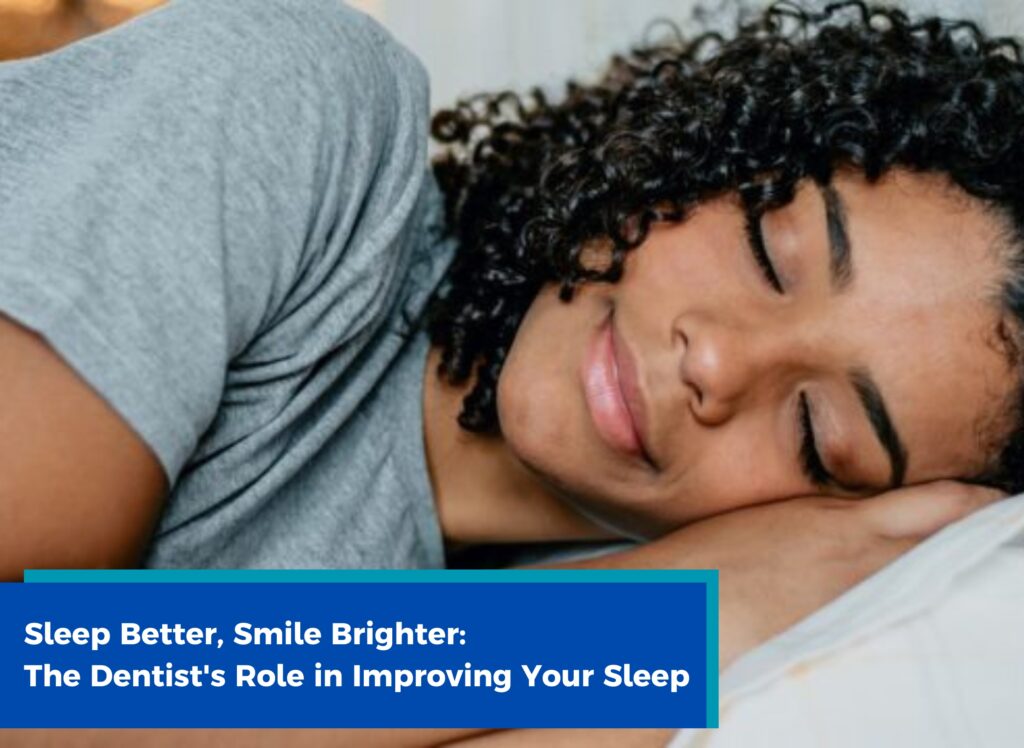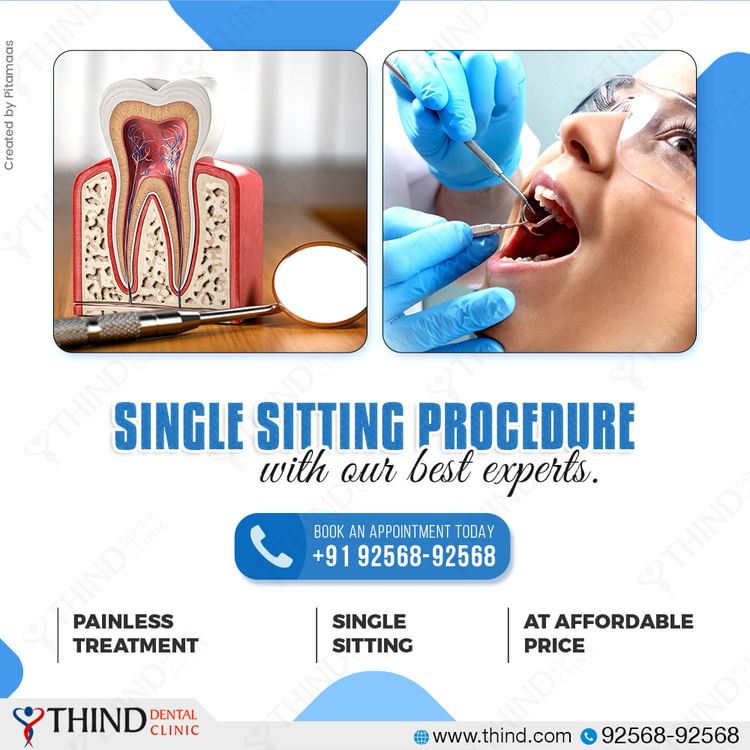The importance of getting a good night’s sleep for general health and well-being. Quality sleep helps our bodies and minds rejuvenate, allowing us to wake up refreshed and ready to take on the day. However, many individuals struggle with sleep-related issues that can negatively impact their daily lives. Surprisingly, your dentist can play a significant role in improving your sleep and, consequently, enhancing your overall health and dental well-being. In this article, we will explore the crucial connection between dental health and sleep, and how your dentist at Thind Dental Clinic in Ludhiana can help you sleep better and smile brighter.
Understanding the Link Between Dental Health and Sleep
The link between dental health and sleep may not be immediately apparent, but it is vital for understanding the impact of oral health on overall well-being. Dental issues such as bruxism (teeth grinding), temporomandibular joint (TMJ) disorders, and sleep apnea can disrupt sleep patterns and affect the quality of your rest. Additionally, certain dental conditions, like cavities or gum disease, can cause discomfort that interferes with sleep. Addressing these dental concerns is crucial for promoting better sleep and overall health.
1. Addressing Bruxism: Putting an End to Teeth Grinding
Bruxism, or teeth grinding, is a condition where individuals unconsciously clench or grind their teeth during sleep. This condition can lead to worn-down teeth, jaw pain, headaches, and disturbed sleep for both the individual and their sleep partner. Your dentist can help alleviate bruxism by providing a custom-made nightguard, which acts as a protective barrier between the upper and lower teeth. The nightguard reduces the impact of grinding, protects your teeth, and allows you to sleep more comfortably.
2. Treating TMJ Disorders: Relieving Jaw Pain and Discomfort
TMJ disorders are ailments that affect the muscles around the jaw joint and the temporomandibular joint (TMJ). TMJ disorders can cause jaw pain, clicking or popping sounds when opening and closing the mouth, and difficulty chewing. These issues can make falling asleep and staying asleep more challenging. Your dentist can diagnose TMJ disorders and recommend various treatment options, such as oral appliances, physical therapy, or lifestyle modifications, to alleviate jaw pain and improve sleep quality.
3. Managing Sleep Apnea: Improving Sleep and Reducing Health Risks
Sleep apnea is a serious sleep disorder characterized by repeated pauses in breathing during sleep. It can lead to loud snoring, choking sounds, daytime fatigue, and an increased risk of various health issues, including cardiovascular problems. There are different types of sleep apnea, and the most common is obstructive sleep apnea (OSA), which occurs when the muscles at the back of the throat fail to keep the airway open.
Your dentist can play a crucial role in managing sleep apnea by providing oral appliance therapy. These custom-made devices reposition the jaw and tongue to keep the airway open during sleep, promoting better airflow and reducing the frequency of apneic events. For severe cases of sleep apnea, a dentist may work in collaboration with a sleep specialist to determine the most effective treatment plan, which may include continuous positive airway pressure (CPAP) therapy.
4. Promoting Oral Health for Better Sleep
Maintaining good oral hygiene is essential not only for your dental health but also for your sleep quality. Dental issues such as cavities, gum disease, and oral infections can cause discomfort and pain that make falling asleep difficult. Additionally, poor oral health has been linked to an increased risk of sleep-disordered breathing, such as sleep apnea.
We can also provide preventive dental care to keep your teeth and gums healthy. Regular dental check-ups and cleanings, along with proper at-home oral care, can help prevent dental problems and promote better sleep.
5. Relieving Dental Pain for Restful Nights
Dental pain, whether from a toothache, dental abscess, or other oral issues, can significantly disrupt sleep. Your dentist can identify the source of dental pain and provide appropriate treatment to alleviate discomfort, allowing you to sleep more peacefully.
Conclusion
Quality sleep is essential for overall health and well-being, and your dentist can play a vital role in helping you achieve better sleep. By addressing dental issues such as bruxism, TMJ disorders, sleep apnea, and dental pain, we at Thind Dental Clinic in Ludhiana can improve your sleep quality, enhance your overall health, and contribute to a brighter, healthier smile. Take the first step towards better sleep and improved dental health by scheduling a consultation with our dental team today. Sleep better, smile brighter, and embrace the benefits of a well-rested and healthy lifestyle.
For additional information or to arrange an appointment with us
You can contact us at +91-92568-92568
or visit us at:
THIND DENTAL CLINIC
11-12-13, 14 H.I.G Market, Opposite Water Tank, Ludhiana, Punjab 141010.
Also Read:
Single Sitting Procedure: Painless and Affordable Dental Care at Thind Dental Clinic
Dental Care for Children: Expert Tips for Parents on Caring for Your Child’s Teeth
The Importance and Benefits of Regular Dental Checkups: Ensuring Optimal Oral Health
Professional Dental Implants: Restoring Smiles with Precision and Care at Thind Dental Clinic in Ludhiana

 Timings
Timings


